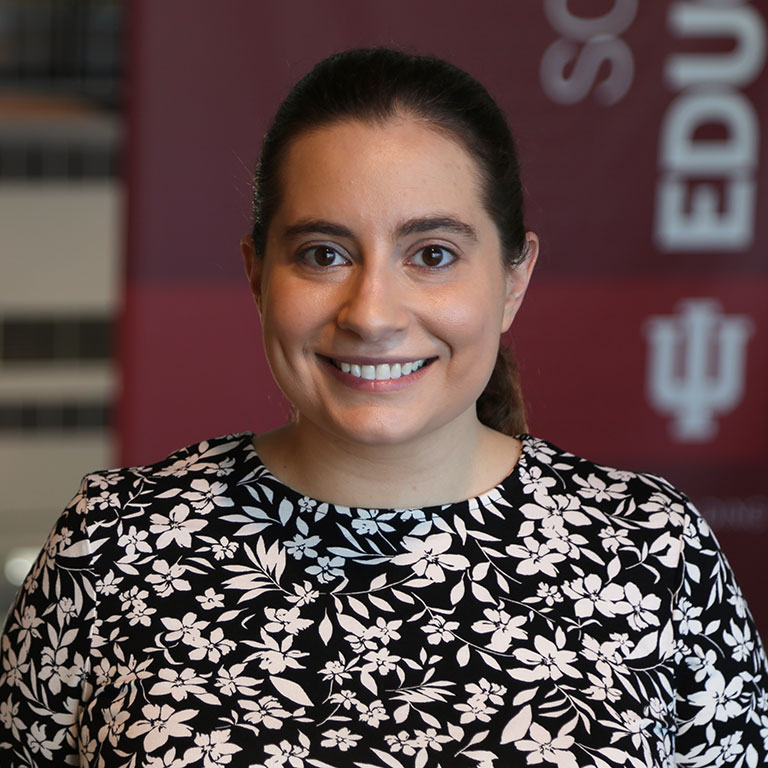Rachel Gross, a Ph.D. candidate in Human Development and Inquiry Methodology, is still working towards her degree, but she’s already proving herself to experts in her field with an invitation to speak at a prestigious consortium over the summer.
Gross’s research centers on studying child development and the research methods in that field. While at Rutgers University getting her Ed.M., she developed an overall fascination with how early childhood experiences relate to later outcomes.
“Research questions started swirling in my mind with the combination of reading research and interacting with and observing children, getting to know their parents, etc. I loved working with children, but those research questions drew me out of the kindergarten classroom and into academia,” Gross said.
Coming to Bloomington to study at the School of Education was a hard one for Gross: it meant uprooting herself from family and friends. But ultimately it was the faculty who helped her know she was making the right decision.
Since then, Gross’s work earned her an invitation to speak at the Inter-university Consortium for Political and Social Research (ICPSR) Summer Program at the University of Michigan, where she gave the Blalock Lecture in Advanced Topics in Social Research. The ICPSR Summer Program is a four-week course that is famous for providing excellent methodological training, bringing in participants from around the world. Graduate students typically do not deliver lectures, especially ones without a Ph.D.
“It was an honor to get to give a lecture on an advanced topic to so many smart, successful people – an auditorium of graduate students and people with graduate degrees in diverse fields,” Gross said. “I got so much positive feedback afterwards, including from people who thought I was already a professor, simply because I was delivering a Blalock lecture.”
Her lecture, “Why Measurement is Important and Why You Should Care About It,” discussed how the validity of research conclusions hinges on the assumption that researchers are studying what they think they are. Gross made sure the talk would be understandable to anyone who might be in the audience.
“I was careful to prepare a lecture on a topic and at a level that would feel engaging and relevant regardless of background. I chose to focus on measurement issues in the social and political sciences, so it felt really good when a biomedical engineer who attended told me that she felt it was relevant,” she said.
Ultimately, Gross hopes her research will have far-reaching effects and lead to better-informed, research-based decisions regarding parenting and children’s schooling.


